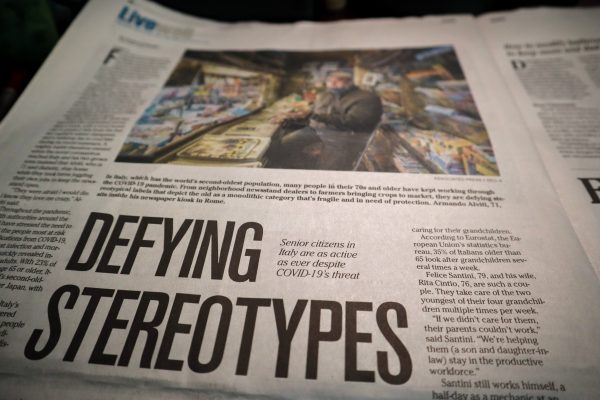The times, they are a changin’. And quickly. Our individual and collective human expression, our story, is adapting, as it always does, but many are feeling disillusioned and disenfranchised by all the madness. The plandemic, a massive fraud decades in the making, threw much of the modern world for a loop, the repercussions of which are still rippling out in all directions. AI is now suddenly in our face, in our phones, in our wallets, our offices, and our homes. Health and wellness is seemingly always under threat, by ourselves, and by manufactured extrinsic means, as disease, mutations, variants and epidemics are ubiquitous in the media.
In this article, I delve a little into some of the main themes and concerns of our time and explore perspectives, opinions, ideas, and directions that may help to reframe aspects of our lives in a different light.
What’s All This About AI?
Artificial or not, the proliferation of AGI (artificial general intelligence) suggests we’re at a turning point regarding information, data collection and dissemination. It’s finding both supporters and detractors in virtually every industry, arts and entertainment, content creation, finance, education and a whole lot more. If you utilize modern technology, it’ll absolutely affect your life. Even if you don’t, I’d wager the ripple effect will be felt across the collective.
So, what’s wrong with that? Nothing, really. The use of automation, machine learning, algorithms, and AGI, is altering the corporate and financial landscape, increasing productivity, profitability and scalability for essentially all those who implement it. Practically, it’s what everyone who cares about the bottom line has been awaiting. This is both the benefit, and the folly of the marketplace; profit is king, not people. While productivity has steadily increased, pay has not, and now it’s potentially threatened like never before.
One of the main concerns, of course, is regarding continued automation, wherein the corporate world requires fewer and fewer human workers in basically every kind of business. We’ve known for generations that if a robot or machine can do the job, it will. Automatons and algorithms care not for meaningful work, happiness, and fulfilment. They just work tirelessly. This will continue without restriction, and without concern for the lower and middle classes, but it’ll undoubtedly influence the entirety of the corporate hierarchy.
If the plandemic, through lockdowns and other asinine mandates, demonstrated how many existing careers were already useless and redundant (i.e., bullshit jobs), AI will likely exacerbate that issue exponentially, quickly disappearing all manner of low-level, menial, and entry-level positions in the near term and eating up mid-level and semi-professional careers in the not-so-distant future.
On one hand, this could be a life-altering blessing because it would free up our time, energy, and creative resources to pursue personal development in earnest, along with honorable and truly meaningful works. On the other hand, the world is heavily dependent upon the belief in money for income (and bills and expenses; cost of living), trade, consumerism, gross domestic product, the delusion of endless progress and economic growth, and sustaining the ubiquitous yet ambivalent marketplace.
We’re programmed to be dependent upon government services, benefits, rights, and privileges. The government is seemingly contingent upon said human dependence, as well as productivity, consumerism, and taxes. If AI increasingly displaces a generation of jobs, careers, and vocations, this would be an argument in favor of something akin to universal basic income, but that idea is fraught with an enormous amount of government overreach, interference, disruption, politics, and corruption. In my view, it’s not a real solution amid the current ethos of the world at large.

On the societal and cultural side of things, history can now be written, altered, and rewritten in real time. To be sure, redaction, censorship, and fraudulent and fictional historical recordkeeping are practices as old as the spoken and written languages employed therein. It is the default practice utilized by those in power throughout every empire and civilization. Numerous libraries have been destroyed throughout the ages to ensure that the dominant narratives, doctrines, dogmas, and contextual materials are as controlled as possible, much to our detriment in the modern era. Ignorance of our time and place in the universe permits the empowered storytellers of the day to maintain their illusions and proliferate widespread fictions and delusions.
And now, with AI and our increasing reliance on technologically accessed information (e.g., e-books, e-zines, e-news, digitally transcribed texts, search engines, and social media), narrative manipulation may happen in microseconds and be distributed everywhere, all at once. Who is going to audit or be able to catch The Matrix in the act?
It probably shouldn’t come as a surprise, but with all the excitement about ChatGPT these days, it’d be wise to open our eyes a little wider and discern what’s happening in the periphery. Some researchers are finding that using this machine learning, pattern-recognizing collection of algorithms is, at least for the moment, an order of magnitude worse than trusting Google’s heavily censored and curated search and even less trustworthy than “openly sourced” Wikipedia (wherein, perhaps ironically, it is stated that ChatGPT provides “uneven factual accuracy”).
The service is evidently quite proficient at spitting out fake articles, using fictitious sources, and collating fake (and outright fabricating) data. Modern disinformation at its finest is an Orwellian wet dream. ChatGPT, it seems, will tell you what you want to hear and read, though not necessarily what’s true.
Or perhaps it’s right on schedule. As more people open their eyes and wake up, more distraction, distortion, disinformation, and obfuscation of what this place is, who we are, where we come from, and where we’re going must remain shrouded in mystery.

What is a Narrative?
There are critical pivot points that occur throughout the cycles of civilizations, and it seems we’re exactly in such a crux right now. Exciting, isn’t it? Automation and AI/AGI are a notable part of that, but there’s much more to it. Regrettably, the media parasites and corporate scaremongers (minions and machinations of the so-called elites, or ageless powers-that-be) are forever performing their usual duty; they’re twisting imminent progress, technological advancements, or practices and programs that have been ongoing for decades, into things to be afraid of, things to profit from, things to terrify and distract the ignorant, and things with which to misdirect and misinform your heart and mind. How very cliché.
It’s hard to believe that we are now over three years into the COVID-19 fraud. We have exposed every aspect of virology and it is clear that the virus model is not supported by the scientific literature.
However, belief in the “virus” is necessary to achieve control of the population and this is maintained through one distraction after another…. Belief in viruses is as deadly as the belief in the authority of the state. Many of the freedom community don’t seem to realise that changing the actors won’t free them from the plantation.
The dominant narrative is a complex set of variables and data, though the prevalent energy seems to default to the negative. It’s all open to interpretation and filtering through our perceptions of the world, of course. Therefore, it’s essential that we pay attention, to be informed, to be educated, and to try to have an objective grasp on the realities of this life. Along the way, it can be a real challenge not to get caught up in manufactured events, illusions, and hysteria; not to jump on any cancel-culture bandwagon; not to bury our heads in the sand; and not to get overly self-righteous about things we’re painfully unaware of just because they’re popular and trendy.
The level of fear-mongering on various topics, such as ‘UFOs’, so-called ‘climate change’, the rising cost of living, ‘spies’ or deadly diseases, to name just a few, has definitely increased lately. There are many reasons that ‘they’ may be intensifying their efforts to maintain fear about an array of different topics; however, we need to be aware that this tactic may also be used to distract us from something else; something ‘they’ want us not to notice or think about. We must therefore remain alert and continue to exercise discernment when discussing these topics, especially as ‘divide and conquer’ is a core aspect of their strategy.
— Dawn Lester
If it’s in all the headlines, city to city, state to state, country to country, that doesn’t mean it’s real or true. What does this widespread blanket-broadcasting suggest? Who benefits? Who profits? Who is behind the narrative?
Naturally, narrative is a literary device, or perhaps more correctly, a cumulative aggregation of them. It is an essential foundational element for building and telling a story. Stories are fundamental to understanding, appreciating, exposing, and expressing our humanity in all its many colors and shades — darkness and light, good and evil. The challenge is that there are entities and interests in this world who are intent on controlling our perceptions and suppressing the intrinsic understanding of our reality, our intuitive sensemaking, our collective power, as well as our advanced, natural capabilities.
“We (the bankers) must proceed with caution and guard every move made, for the lower order of people are already showing signs of restless commotion. Prudence will therefore show a policy of apparently yielding to the popular will until our plans are so far consummated that we can declare our designs without fear of any organized resistance…
Capital must protect itself in every possible manner through combination (conspiracy) and legislation. The courts must be called to our aid, debts must be collected, bonds and mortgages foreclosed as rapidly as possible. When, through the process of law, the common people have lost their homes, they will be more tractable and easily governed through the influence of the strong arm of the government applied to a central power of imperial wealth under the control of the leading financiers. People without homes will not quarrel with their leaders.
History repeats itself in regular cycles. This truth is well known among our principal men who are engaged in forming an imperialism of the world. While they are doing this, the people must be kept in a state of political antagonism. The question of tariff reform must be urged through the organization known as the Democratic Party, and the question of protection with the reciprocity must be forced to view through the Republican Party. By thus dividing voters, we can get them to expend their energies in fighting over questions of no importance to us, except as teachers to the common herd. Thus, by discrete actions, we can secure all that has been so generously planned and successfully accomplished.”
— The Bankers’ Manifesto of 1892
In seeking and discerning the truth, it’s essential to follow the money. These age-old corporate interests and ruling families have their fingers in every pie, as it were. They influence and control the dissemination of news and publicly available information, and they have owned major entertainment and media corporations for generations. Today, of course, this extends to the spheres of the internet and social media.
A modern, yet historically relevant element of narrative manipulation relates to the modern explosion of identity politics and woke ideology. Regrettably, there are those intent on making sure that anything potentially offensive to anyone is limited and prevented from reaching the general audience. Sensitivity and authenticity “readers” exist today for exactly this purpose. Not to discern truth, not to verify facts, but to cater to progressive ideologies wherein sensitive topics (sensitized and sensationalized through perpetual repetition across all media) are censored, redacted, reworded, and rephrased to be in line with homogenized, normalized, modernized, and bastardized language, idiom, adage, and expression.
Yet again, the influencers of state institutions decide what is and is not acceptable to say, do, think, believe, etc. This is nothing new and has occurred with regularity throughout history.
In my view, you cannot protect a society (especially children) from history by altering, eradicating, and suppressing it. We can only learn from what came before through faithful accounts, novels, the literature of the time, and the language of the era. Language and ethos, much like science, are improved upon through time, conscious refinement, and countless iterations. Furthermore, for a child to mature into an adult — emotionally, epistemologically, and psychologically — appreciating, grasping, struggling, and suffering with both the beauty and the ugliness of humanity is a critical and necessary process.
To be sane in this world, it is necessary to carry both the horror and the beauty in one’s heart. Then you are playing with a full deck of cards. The full spectrum of the condition of life on earth will inform the heart in its choices. That is one of the keys to creating a more beautiful world in our lifetime.
If the argument for sensitivity and authenticity readers is such that by removing potentially offensive cultural references or by homogenizing the language, stories, and events of the past in an effort to “fight for inclusion, against racism, and to promote equality,” then, in my view, it’s nothing more than myopic arrogance, ignorance, and logical fallacy. In fact, if the grand idea is to prevent violent, dark, and harrowing events from happening in the future, this woefully blind, progressive movement will essentially ensure that violent, dark, and harrowing events happen yet again.
Penguin Random House recommends “authenticity readers” to any of its authors who are “writing outside their personal experience” (i.e., using their imaginations), to prevent them from “perpetuating stereotypes,” or exhibiting their “unconscious or internalized bias” and creating “patterns of harmful representation,” and so on.
If this sounds to you like some kind of creepy, Orwellian-Ministry-of-Truth-type mindfuckery, that’s because that’s exactly what it is. It doesn’t really affect old farts like me — I wouldn’t let any of the big corporate publishers or their “sensitivity readers” near my writing, which they would never publish in any event, and which would likely cause them to experience seizures, and then stagger around the office looking for differently-abled-Black-transgender colleagues to kneel down in front of and apologize to — but there’s a whole generation of aspiring writers who are being conditioned to accept this as “normal.”

What is Climate?
It’s pretty easy to talk about “climate change” now, isn’t it? No, not really. Not in any intelligent, critical, or reasonable way. I’m sorry to be so direct, but it’s more likely you’re parroting what’s been beaten into your head through endless repetition — the persistent messaging you’ve been inundated with through the news, film, TV/streaming services, and celebrities and influencers (paid actors) on social media. You don’t really know what you’re talking about, you’ve done little to no research on the subject, and worse, you’ve been programmed to believe it’s important (it MUST be something you value and your highest priority), that the Earth is in trouble (your HOME, your LIFE, and your SURVIVAL are under immediate threat), and that you are partly responsible (you MUST be part of the solution, otherwise you’re part of the PROBLEM).
The American motion picture is the greatest unconscious carrier of propaganda in the world today. It is a great distributor for ideas and opinions. The motion picture can standardize the ideas and habits of a nation. Because pictures are made to meet market demands, they reflect, emphasize and even exaggerate broad popular tendencies, rather than stimulate new ideas and opinions. The motion picture avails itself only of ideas and facts which are in vogue. As the newspaper seeks to purvey news, it seeks to purvey entertainment.
— Edward Bernays
It’s a potent, emotionally charged trifecta, the likes of which are always employed by those intent on steering the narrative. Another way to put it is that social engineering is a real issue and that we’ve all been subjected to its influences. Remember: the general public is being lied to with astonishing regularity about nearly everything. We are relentlessly misinformed, terrified, guilted, and shamed into actions incongruent with our intuitions and sensibilities.
Perhaps you’re now feeling triggered or defensive. I would understand why, as I’ve outlined already. What’s this climate denier going on about? Why does he hate the planet? This nutjob, antivax, new age, far-right extremist is clearly brainwashed… Where are those beliefs and feelings coming from? Are they even true?
Here’s a disclaimer: I absolutely agree with and support the notion that we must be conscious stewards of our earthly home. We have to keep improving upon industrial, commercial, and other practices that affect our environment and, thus, the lives, health, and wellbeing of everyone. That’s never been the issue, and no reasonable person would ever think otherwise. That’s part of the big lie.
But, electric cars? Reliance on wind and solar power? Are you mad? In my view, it has become such that anything that governments or corporations do that in any way challenges the climate, CO2, and global ecological and anthropological threat narrative is to be treated with disdain, suspicion, dismissal, and derision. We’re quick to generalizations, childishness, and infantilism, yet not to understanding and reason.
Imagine for a moment if the oil and gas sector had direct (or indirect) connections to slavery, child labor, or working conditions so dangerous that thousands of their workers were dying on the job every year.
The uproar and indignation would be heard from here to Houston. But in the case of the world’s supply of cobalt—an element that is a critical ingredient in the batteries that are driving the global EV craze—the response to the widespread use of child labor and hell-like working conditions in the Democratic Republic of Congo, has gone largely unnoticed and vastly under-reported.
It’s nonsense. Mountains of legitimate scientific evidence and data are available, yet the media intelligentsia seems to ignore it. Worse, they willingly and actively misrepresent it, cherrypicking and skewing the facts to suit their short-term, let-me-keep-my-job needs. I’ve mentioned the plandemic… After three years of this most epic of frauds, journalists are still reporting on the efficacy of face coverings, the threat of “viruses,” and the “safe and effective” treatment protocols. Absolute rubbish. It keeps many of us spinning our wheels, never progressing past even the most rudimentary of fictions. Certainly, the few do get shaken from their cognitive slumber, yet the masses are simply primed and ready for the next staged panic attack.
You need the eyes to see and the ears to hear beyond the distortions and propaganda.
Now let’s think about the narratives around climate change.
We know that today there is a deep obsession with C02. As I have stated in my work for over a decade, this tracking of C02 in relation to climate change is not about making the world a better place or fixing the environment, it’s about developing economies, controlling people, and finding a metric that can be turned into data and graphs and then pinned on citizens.
The climate changes for MANY reasons, primarily through natural cycles. There is no consensus on what’s happening with the climate regardless of how many times it’s said by the mainstream. But by building a narrative around C02, supported by many numbers, graphs, and insights, governments and powerful individuals can find means for control and wealth creation in the name of “fixing the environment.“
Yes, our environment needs help, our work has created awareness around this for 15 years, but do you notice how government is rarely focusing on the best ways to truly help our environment and are instead focused solely on C02 emissions? This is an illusion, and it’s keeping the masses deeply misinformed when it comes to how we should think about our environment woes.
If you don’t know where you stand, where you are, where you come from, or who you really are, then WHY you are exists in a state of perpetual uncertainty. That’s a recipe for unconscious, quiet desperation, depression, and worse.
“Fossil fuel” is not what we’re burning in our machinery. It’s a renewable, naturally occurring substance. The polar ice isn’t melting at a record pace, nor are the seas rising. Global temperatures are not climbing more rapidly every year. They’ve gone up about a single degree Celsius, over a century. CO2 isn’t going to cook us anytime soon. In fact, it’s greening deserts, and we’re thriving because of it. CO2 is essential to human and animal and plant life. When did it become the enemy? Simple: they told you to worry about the climate and they’ve been banging that drum incessantly, year after year, for decades. I’m in my forties and throughout my life it’s been a constant barrage of warming, cooling, extreme this and that, ozone layer issues, and all the rest.
Nonsense.
None of the catastrophic events they’ve been predicting over the past century have ever come to pass. Not one.
However, all of this being said, on a grander scale, yes, there are real, true, cataclysmic cycles that seem to happen with alarming periodicity, like clockwork. And yes, I realize this revelation doesn’t make this essay any less confusing, as perhaps it’s already bordering on convoluted. I apologize. As I’ve stated, it’s complicated. But my aim is always the same: to distill the truth and share it.
It’s a rather disturbing dichotomy. It’s not at all the issue climate alarmists are worried about (or even aware of), nor is it what we’re being told we should be anxious about and planning for. It’s an entirely different (and demonstrably real) issue they have been hiding, obscuring, redacting, and suppressing. Should we be surprised at all?
For example, what really happened in 1902–03? What is it that occurs every 138 years (and multiples thereof) in May, without fail? There are other significant life-altering calamities that happen as well, such as magnetic pole shifts and truly extreme localized, regional, and worldwide disasters. Whatever is causing it seems to discriminate. These are real, documented, and provable things, while the manufactured, heavily political panic about climate change is not.

What is Time?
Right now, you believe it to be the year 2023, but this is only according to the Gregorian calendar, the age-old system of noting the passage of time — the system that most of the modern world is currently operating within. It’s a somewhat functional mess, polluted with religiously subsumed and wildly distorted traditions, leap years, daylight-savings nonsense, and inconsistent and oddly named months (i.e., February is rightly the 12th month, not December, and the new year begins on March 20). It’s curious how we will make accommodations and compromises for these useful-yet-broken foundational constructs — tools necessary for navigating our reality — instead of challenging, improving upon, or replacing them.
Sure, it’s unsettling to think about changing the way days, weeks, and months work. It rattles our identity to the core. Yet, these big lies permeate much of our culture and have unconsciously debilitating consequences. If we never question or challenge them, they will never be adapted in ways that serve us better. You can’t just change the calendar system! Imagine the chaos!
On a larger scale, the Annus Mundi timeline suggests, based on rigorous research, verifiable historical records, and real math, that it’s actually the year 5917. Given the nature of the consistent and prolific manipulation of history and the events thereof, I’m inclined to favor this chronological datum. But even that consideration raises further questions: What happened 5917 years ago? What was of such consequence as to require that we restart the clock?
It should come as no surprise, then, that our long-trusted protocols in the measurement of all things ancient are misleading. Carbon (radiometric) dating and other related methods of determining the age of geologic or archeological finds are provably inconsistent and wildly inaccurate, but, hush now, don’t tell the people writing textbooks! The greater issue is that traditionally-educated researchers and scientists, indoctrinated into the uniformitarian model, haven’t been enlightened to the idea of the countless extenuating geologic, meteorologic, environmental, and atmospheric phenomena that have occurred over the past 6,000 years, many of which would dramatically alter and skew the nature, chronology, and veracity of their acquired and presumed reference materials. Jason Breshears of Archaix calls these events “Phoenix Phenomena” and “Vapor Canopy,” among others. Be ready to challenge your perceptions.
The unsettling truth is that we don’t really know how old anything “ancient” is — not without digging into thousands of ancient texts and reference materials, collating and correlating, and working laboriously to connect the dots. The problem here is that for those who have undertaken such monumental feats, an entirely different narrative and chronology (and the evidence of manipulated calendar systems) emerge. There was a time in the past when a year was only 360 days. How and why did that change? Once again, everything you think you know about human history goes out the window.

What is Space?
I am not a fan of Flat Earth theory, but these days, I’m not quite certain we’re on a Globe Earth, either. So, what’s the truth? Much of what the FE community offers to debunk the GE position is convincing.
Our minds are malleable, and thus our reality and the perceptions we adhere to can be easily manipulated. Since the advent of television, the game of misleading and disinforming the general public has been a common practice. It was the CIA who invented the notion of “conspiracy theory,” so they had a hammer with which to throttle any dissenters to their manufactured narratives. They, and other elements of the military industrial complex, have had their fingers in all aspects of mainstream media since the organization’s creation. Not surprisingly, NASA is also part of that reality/fantasy blurring collective.
Why would they lie to us about the nature of this plane or realm? Why do they need to keep us believing that at any moment, an errant asteroid will smash into us and end all life as we know it? Or that aliens are going to attack? Or that cosmic rays, solar winds, solar flares, and EMPs are going to fry us? Or that “space is hard?” How can a multi-billion-dollar-a-year government space agency “lose” all of their data, blueprints, technology, and capability for going back to the moon? The evidence seems pretty clear that we never went in the first place.
If we’re on a cosmic orb, zooming, spinning, and hurtling through space, why haven’t the stars above us moved in millennia? What’s keeping all the water on the planet if space is a vacuum (negative vs. positive atmospheric pressure)? Why do so many ancient texts refer to this place as a firmament and the planets as luminaries and wandering stars? Why do pilots of commercial airlines say the Earth is flat as a pancake? Regardless of your elevation or altitude, the horizon always rises to meet your eyes. No curvature whatsoever. Why is no one allowed to sail to, nor past, Antarctica?
There are so many questions. It would appear that neither the Earth nor the sky above it is as it’s been described. Since I haven’t personally experienced anything beyond life on terra firma and a few airplane flights, I reserve the right to change my mind.

So, What is Real?
Reality is constantly giving itself away. Meaning, there are discernible patterns, glitches, cycles, repeated phenomena, extraordinary events, and telling details that seem only to invite confusion and questions rather than provide clarity and answers. How is this even possible if this place, this reality, is really real?
Many lifelong researchers believe we live in a simulation. The way you define the word affects whether or not you accept or deny the claim’s validity. The sheer amount of effort expended throughout recorded history to obscure, obfuscate, deny, hide, censor, redact, and distort what has actually happened on Earth and to the humans who live on it practically necessitates the conclusion that this is all part of an incredibly complex, elaborate, multilayered, multidimensional program. Even more unsettling is the possibility that it (and we) have been reset on a regular basis.
Is it a malevolent, parasitic matrix, or a soul trap designed to drain our energy and feed on our fears? To keep us fighting and from remembering where and when it all began? To keep us small, dumb, confused, helpless, and vulnerable? Or is it a proving ground for experimenting with various experiences and potentialities in order to collect as much data as possible in order to solve real-world existential problems outside the framework?
If it is a simulacrum, or one of countless simulacra, that would suggest it’s a copy (or a copy, of a copy, of a copy), or a representation of the real deal. Further, it suggests that anything that happens in here has no bearing on who we are “out there.” This is one of the central tenets of simulation theorists, and they all seem to agree that nothing can harm us in here, as what we are in this matrix is merely an avatar.
If it’s a simulation, who, or what, has us “jacked in,” and how, or when, does it end?
In this video, Jason Breshears asks OpenAI some pertinent questions, tying the theory of the simulacrum to the present reality of AI. Not surprisingly, the answers confirm his position and align with his long-held conclusions, but this presentation also introduces some rather unsettling possibilities. Just how many resets have we gone through?
I think it’s interesting to posit these concerns and to understand our perceptions and reactions. In general, the nature of our reality is unknown to us. I think it’s exceedingly rare to even approach these topics outside of obscure YouTube channels we happen to accidentally come across. For me, Archaix has provided many hours of fascinating research and inquiry. Why do we believe what we believe? We explore many of these ideas through movies and TV series. Regrettably, much of it favors violence, attacks, invasions, and any number of “harrowing details,” as it were.
We believe in a variety of laws that govern this place. Many are based on materialistic science; some are spiritual and metaphysical in nature. How any of these rules matter or apply all comes down to the individual, really. If we contemplate and become aware of how our thoughts, actions, intentions, and feelings reverberate out into the world — how they affect not only ourselves but those around us, how events and circumstances align with the realities we most prefer to experience — we might say that the game is for us to both find and pursue meaning and purpose.
Solvitur ambulando
Written by Trance Blackman. Originally published on tranceblackman.com on 19 February 2023. Revised 19 April 2024.
